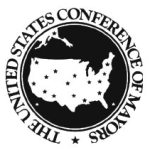Published October 24, 2012
It was a great benchmark of progress for the Democracy Movement when the NY Times devoted its popular “Room for Debate” feature to discuss the merits of amending the Constitution to revoke the dominance of money over elections. Our calls for an Amendment, which just a few years ago were “voices in the wilderness,” now are debated in the mainstream press.
We have a long, hard road ahead, but this is a notable mark of progress on the road from impossible to inevitable. Also, this comes just weeks after the NYT offered editorial support for our (meaning all Amendment advocates) position, which Reclaim Democracy! has advanced for more than a decade..
We compiled the four essays (on whether or not to push an Amendment to overturn corporate personhood and “money = speech” precedents) below with added reference links and commentary (in red).
Venerable Way to Overrule Reactionary Justices
Jamie Raskin is a professor of constitutional law at American University’s Washington College of Law and a state senator in Maryland. He is the author of “Overruling Democracy: The Supreme Court Versus the American People.” [Highly recommended]
“The state need not permit its own creation to consume it.” — Justice Byron White
We the people have amended the Constitution many times to repair the damage to democracy inflicted by a reactionary Supreme Court. The 13th, 14th and 15th Amendments after the Civil War dismantled the Dred Scott decision (1857); the 19th Amendment (1920) overturned Minor v. Happersett (1875), which held that Equal Protection did not protect the right of women to vote; and the 24th Amendment (1964) repudiated Breedlove v. Suttles (1937), which upheld the use of poll taxes to keep poor people from voting.
Today, Citizens United cries out for constitutional correction, because modern democracy requires a wall of separation between the awesome wealth of private corporations and political campaigns for public office.
The Roberts court bulldozed this wall which, although in place for decades, was vulnerable because it was written into statute rather than into Constitutional bedrock. When the conservative bloc demolished the wall, and the U.S. Circuit Court of Appeals for the District of Columbia wiped out any limits on what wealthy individuals can give to independent expenditure campaigns, these outbursts of judicial reactivism released a flood of billions of dollars into our politics.
Speaking both legally and politically, corporate political spending can have only one purpose: to earn back higher returns for investors by turning elected officials, the public and the government itself into effective tools of private corporate gain.
By converting every corporate treasury in America into a potential political slush fund, the court has endangered not only the integrity of our political institutions but the fairness and competitiveness of our market economy. Businesses should thrive by virtue of their creativity rather than the volume of their campaign spending and the number of lobbyists they employ. Adam Smith would be just as appalled as Thomas Jefferson or Franklin D. Roosevelt at this state of affairs.
A plutocratic corporate state favors huge corporations that have a symbiotic relationship with politicians and government — think of the military-industrial complex, big Pharma, the energy industry. Free-market economists are warning us that incumbent “extractive” industries like these use political power to monopolize the market, crush competition and distort public priorities. They are urging us to “save capitalism from the capitalists.” But, to do so, we first have to save the Constitution from the Supreme Court.
All constitutional amendments seem impossible until they become inevitable, but this one is essential. An amendment to empower Congress and the states to reasonably regulate campaign contributions and expenditures will allow us to restore, on firm constitutional ground, the wall of separation between corporations and elections and some semblance of political equality between the rich and everyone else.
It will protect the public’s imperiled interest in campaign finance disclosure and our nearly obliterated interest in building public financing regimes that make publicly financed candidates minimally competitive with candidates bankrolled by big private bucks.
The Right Goal, the Wrong Approach
Monica Youn is the Brennan Center Constitutional Fellow at New York University School of Law.
A proposal to amend the Constitution can function on two levels, the actual — forcing a change in constitutional law — or the aspirational — transforming popular understanding and engagement.
I have serious doubts that trying to amend the Constitution to overturn Citizens United would work on an actual level, even apart from the obvious problem of amassing the necessary support. An amendment strategy assumes there is a silver bullet that can take care of a particular problem with a simple constitutional proposition, or a set of simple propositions. But even critics of the ruling (myself included), cannot agree on the crux of the problem — whether it’s corporate personhood, equating money with speech, or the special status of elections in First Amendment law. More fundamentally, the complex regulatory problems of money in politics require flexibility and nuance and resist such encapsulation.
Surely no one working to pass amendments giving black citizens or women the right to vote thought they were ending discrimination or creating full equality by doing so. All of us working to amend the Constitution and reverse the line of Supreme Court cases that allow corporations and money to dominate democracy are aware the problem is multi-faceted. But overruling several Court decisions unsupported by our Constitution is essential to progress. These include, among others, Citizens United, Randall v Sorrell (we submitted this amicus curiae brief), Buckley v Valeo and Santa Clara County v Southern Pacific Railroad — all of which add layers to the root corruptions: that money=speech and corporations are people.
Even if you pick the right target for the silver bullet, you can never underestimate an unwilling Supreme Court’s ability to dodge it through an interpretive evasion. This creates a separate dilemma — either you draft your amendment narrowly, accepting that resistant judges and private actors will make the most of whatever loopholes remain, or you go broad, creating potentially enormous problems of unintended consequences in the sensitive sphere of expressive freedoms.
True, but this concern exists of nearly every issue addressed in the Bill of Rights and most other Amendments.
On the aspirational level, however, a constitutional amendment strategy may be more valuable. Unlike ordinary legislation, an amendment has a unique power to capture the public imagination, catalyzing awareness and engagement. Such a strategy can yield concrete gains whether or not the proposed amendment is adopted. An educated and energized constituency is a lasting resource that can be mobilized to push for other, more readily achievable reforms.
We should, however, be suspicious when politicians use the aspirational as political cover to avoid talking about the actual. Even in the post-Citizens United era, there are reforms that are within reach and that would make a difference — such as greater disclosure, public financing, regulatory reform and a Federal Elections Commission overhaul.
We agree and support many legislative reforms that represent progress toward the end goal.
But it’s a lot easier for politicians to sign on to a highly unlikely constitutional amendment than to back reforms that would force changes in their own fund-raising practices. Treating a largely political problem as a purely constitutional problem can be just another way of passing the buck, of blaming the Supreme Court for our own failings.
A puzzling conclusion, given that Ms. Youn just vouched for the efficacy of our strategy: “Such a strategy can yield concrete gains whether or not the proposed amendment is adopted.”
The First Amendment Is Just Fine As Is
Floyd Abrams is a senior partner in the firm of Cahill Gordon & Reindel. He represented Senator Mitch McConnell, Republican of Kentucky, in the Citizens United case. He also has represented The NY Times in the Pentagon Papers case and other prominent cases.
I’ve just returned from a few days in Ohio. Yes, that Ohio, the likely election-deciding state. The Citizens United case, so persistently damned by so many, is at work there. Sometimes a viewer will see four ads in a row urging viewers to vote for or, at least as often, against. Sometimes it’s aggravating, sometimes enlightening. But always, it’s a vindication of the First Amendment.
The core principle that underlies the Supreme Court’s Citizens United ruling is the same one that underlies the First Amendment. As Justice Anthony Kennedy put it in his opinion in the case, “political speech must prevail against laws that would suppress it, whether by design or inadvertence.” And, he said, the First Amendment “has its fullest and most urgent applications to speech uttered during a campaign for political office.”
Quoting a pure espousal of opinion by one of the ruling’s authors is not the most compelling defense.
Well-established principles like these are what led the court in Citizens United to strike down legislation that made it a crime for any corporate or union money to be spent within 60 days of an election on material that appears on television, cable or satellite that endorses or denounces a candidate for federal office. It was not new for the court to apply the First Amendment to speech of corporations; Justice Kennedy cited 25 prior cases (including ones involving the corporate owner of The New York Times) involving just such First Amendment protection. The opinion, as well, made clear that Congress was fully empowered to require disclosure of who made what expenditures and in what amount.
In Citizens United itself, the speech at issue was contained in a documentary prepared by a right-wing group that harshly (and in my view terribly unfairly) criticized then-Senator HillaryClintonwhen she seemed likely to be nominated by the Democratic Party for president in 2008. But that’s what the First Amendment exists to protect. The same is true of the advertisements that I saw inOhio.
Some critics of Citizens United have gone so far as to suggest a constitutional amendment that would bar or limit what individuals could spend of their own money to seek to persuade others to support or oppose. [This vague wording suggests there are groups out to stop individual independent expenditures, but neither Reclaim Democracy nor any of the groups we work with propose this approach re personal spending independent of a candidate or party.]
As far back as 1976, the Supreme Court correctly concluded that any such efforts violated the First Amendment since it did not limit corruption or even the appearance of it, but did severely limit speech.
The claim that spending money to help elect or defeat a candidate cannot create any appearance of corruption is utterly detached from common perceptions.
That’s the crux of the matter. Critics of Citizens United believe it is undemocratic. What they ignore is that nothing could be more undemocratic than amending the First Amendment for the first time in our history in a way that would lead to less speech and far less freedom.
We would argue it creates the space for more actual speech to be heard and greatly expands freedom by opening the entirely of the electoral process to millions of Americans currently excluded from any activity but choosing from the pre-determined menu on election day.
The Only Way to Revive Real Democracy
Bob Edgar is the president and chief executive of Common Cause. He represented a suburban Pennsylvania district in the House as a Democrat from 1975 to 1987.
If we’re serious about restoring government of, by and for the people, we need to get big money out of our elections. From the Watergate era through the early 2000s, Congress and state legislatures passed campaign finance laws designed to limit the influence of corporations and wealthy donors on elections and public officials.
The system was less than perfect, but it has been decimated in recent years by Supreme Court rulings like Citizens United v. F.E.C. that give corporations and unions the same constitutional rights as human beings, and equate spending an unlimited amount of money on politics with free speech.
The money now flowing into our politics isn’t free speech; it’s paid speech. In this presidential campaign alone, a handful of deep-pocketed supporters of Governor Romney and President Obama are in the process of spending well over $1 billion carpeting the airwaves with mostly negative advertising.
No one invests such sums without expecting a return, and no one should be surprised when this year’s big political investors start collecting favors from the people they helped elect. It’s time to stop this charade. Corporations aren’t people. They don’t vote, get sick or die in wars for our country. The Constitution was written to protect the rights of individuals, not corporations.
We can correct the Supreme Court’s misreading of our Constitution by passing an Amendment that authorizes limits on campaign contributions and spending, reins in corporate rights and ensures that all citizens, regardless of wealth, have an opportunity to speak and be heard.
Passing a constitutional amendment is rightly difficult. It requires super-majority support like that evident in a Hart Research poll done last year that found 87 percent of Democrats, 82 percent of independents and 68 percent of Republicans in support of an amendment to overturn Citizens United.
Legislators in nine states and local officials in more than 300 cities already have called for such an amendment. This Election Day, voters in Colorado, Montana, Chicago, San Francisco and dozens of municipalities will vote on ballot measures instructing their members of Congress to work and vote for such an amendment.
Big money has no place in elections, and our democracy should never be for sale. Let’s “amend to mend” the misreading of our Constitution by an overly ideological Supreme Court.
When coverage like this appears, please write to let the editors know you care about the issue and applaud their continued coverage. We’ve provided a thorough primer to help, and we are happy to offer free editing assistance.
Read our draft constitutional Amendment to revoke corporate constitutional “rights” (published nearly a decade before the Citizens United ruling) and Move to Amend’s proposed language.
For background, see our comprehensive introduction to Citizens United



